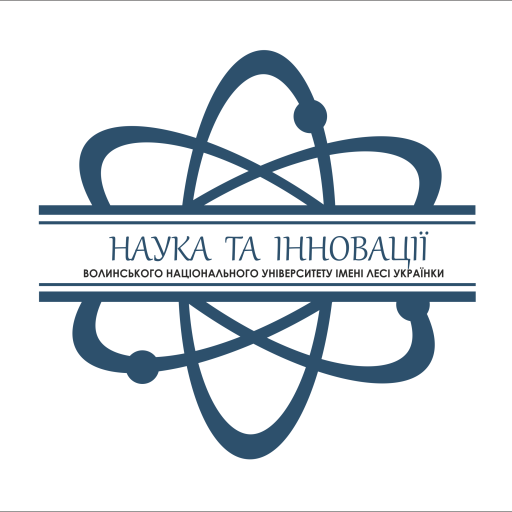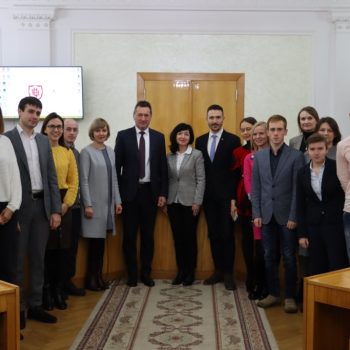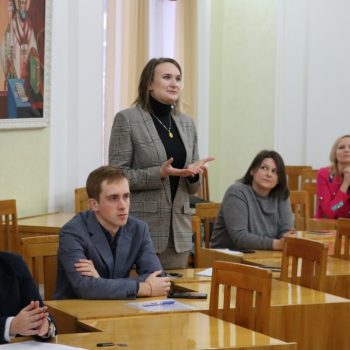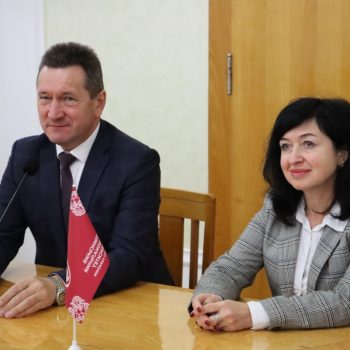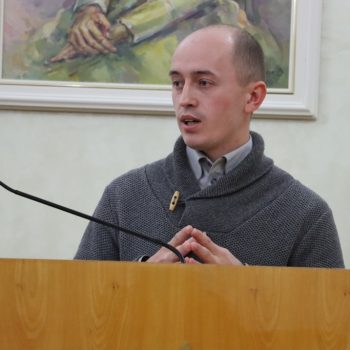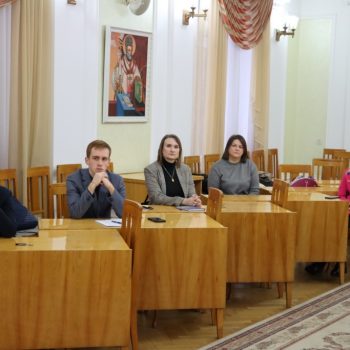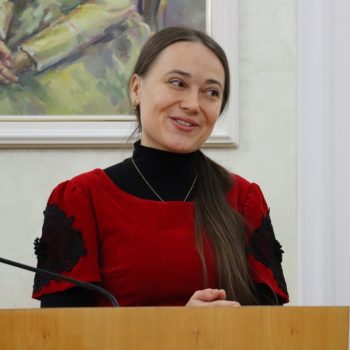The 4th International Conference on ‘Current Issues of Natural Sciences and Humanities Development” was held at Lesya Ukrainka University.
The conference was aimed at examination of current problems in the development of natural sciences and humanities, and further development of guidelines to their solutions according to the young scholars’ viewpoints.
This year, round 200 scholars took part in the conference. Those were coming from VNU, as well as universities of Kharkiv, Kyiv, Lviv, Kryvyi Rih, Bila Tserkva, Melitopol, Zaporizhzhia, Mykolaiv, Khmelnytskyi, Pereyaslav and Ostroh. Some participants came from abroad, i.e. Max Planck Institute of Chemical Physics of Solids (Dresden, Germany). About 260 reports were sent to the conference. The most popular sections were History and Political Studies; Geography, Tourism and Land Management; Chemistry and Pharmacy.
In general, the participants worked on 18 directions; namely, economy; pedagogy; law; physics, mathematics and IT; modern engineering and technology; chemistry, pharmacy; ecology; biology; history and political studies; national and cybernetic security; philology; physical education and sports; arts and culture; international relations; journalism, publishing and editing; physical therapy, ergotherapy; geography, tourism, land management; psychology and sociology.
The conference was officially opened by the VNU Rector Anatolii Tsios, the Vice Rector for Scientific Work and International Cooperation Larysa Zasiekina, the Head of the Research Department Iryna Hlova, the Head of the Young Scholars Council Hennadii Holub, as well as by young scholars and students.
“The role of science in human life is immesurable. We are thankful to science for everything we have. Science is an interesting thing; it is never individual. Everything should be discussed. At universities, science is priority. And I am grateful to Larysa Zasiekina, Iryna Hlova and everyone else for active contribution to this work. Thank you all for participation. I wish you fruitful work, interesting findings and good health”, the Rector said in his introductory word.
The Vice Rector for Scientific Work and International Cooperation Larysa Zasiekina wished courage to young scholars: “Remember that you can achieve anything you want in science. Don’t be afraid to pursue ambitious goals. Remember that Ukrainian scholars are praised all around the world. I am sure that your today’s reports include useful innovations, too”.
Then the participants listened to the student Nataliia Brynchuk’s lecture on “Social and geographical aspects of expansion of COVID-19 in Ukraine”. PhD in Chemistry, Senior Laboratory Worker of the Department of Chemistry and Technologies of the Faculty of Chemistry, Ecology and Pharmacy Oleksandr Smitiukh presented the periodical system of chemical elements as a “moderator” of the development of chemistry to his colleagues. A Master’s student of the Faculty of History, Political Studies and Homeland Security Dmytro Zeniuk spoke on informational and psychological security of a person in the hybrid war. PhD in Biology, Associate Professor of the Department of Botany and Methods of Teaching Sciences shared her findings in the contrastive morphology of a Amaryllidaceae J.St.-Hil subfamily flower.
The rest of meetings were held online.


